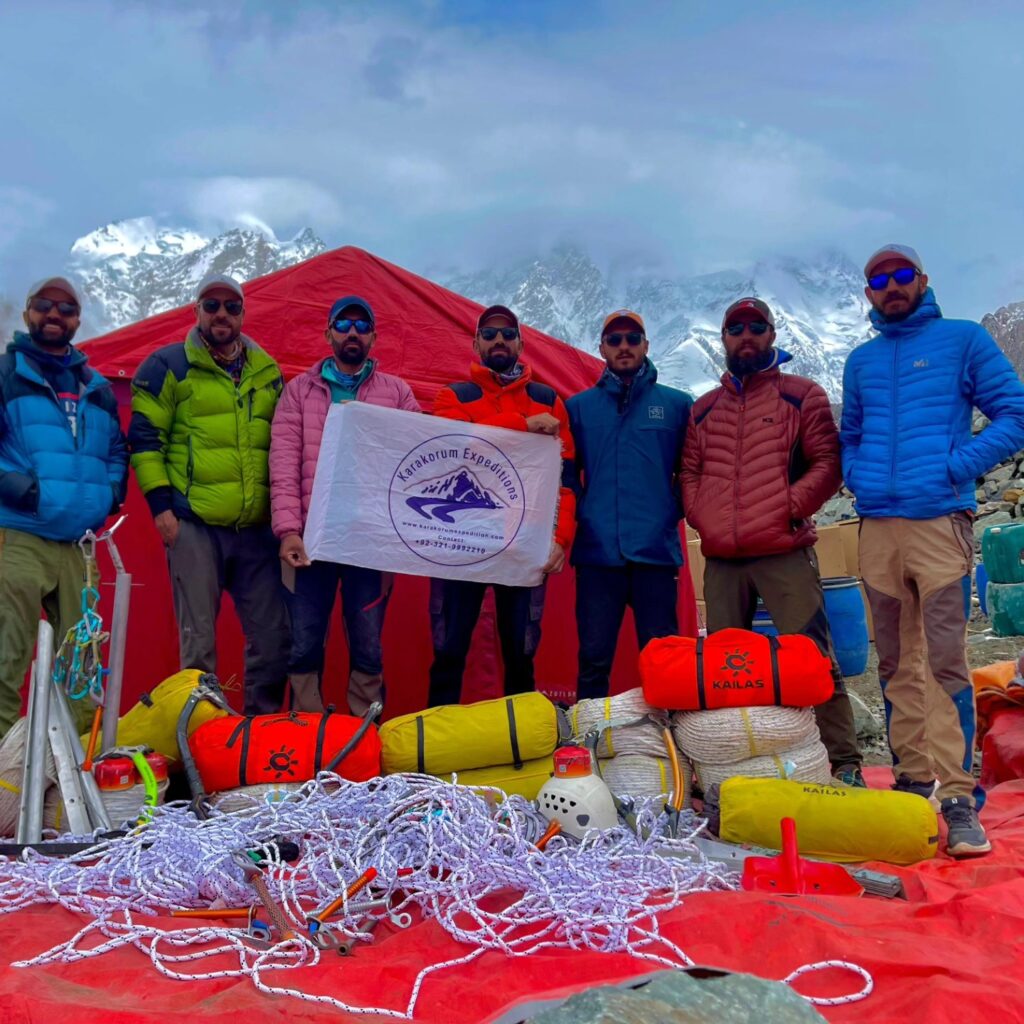June 25, 2025 | Concordia, Karakoram
The climbing season in the Karakoram region is gaining momentum as numerous mountaineers, porters, and expedition teams converge upon the Baltoro area, targeting the towering 8000-meter peaks—K2, Broad Peak, and Gasherbrum I-II—that dominate the landscape. As July approaches, the Concordia camp is bustling with international climbers, trekking groups, and high-altitude logistics teams, despite recent geopolitical tensions between India and Pakistan that had the potential to disrupt travel in the area. Fortunately, a resolution to the standoff has enabled many climbers to successfully fly into Skardu, the gateway to the Karakoram.
In a significant departure from previous years, during which Sherpa teams from Nepal primarily performed the challenging task of fixing ropes—often resulting in prohibitively expensive logistics for many teams—this season has witnessed a notable increase in local leadership. A determined group of climbers from Shimshal, a high-altitude village in northern Pakistan renowned for producing elite alpinists, is now taking the lead in rope-fixing operations on Broad Peak, Gasherbrum II, and K2.
“Our advance and rope-fixing team has arrived at Broad Peak Base Camp and will soon begin their work on the mountain!” announced @karakorumexpeditions on social media. “It’s very exciting to share that our team will work on GII, Broad Peak, and K2 this season! Having the biggest local manpower in Pakistan, we thank each of you for putting your trust in us!”

The expanding role of the Shimshali team not only underscores their unparalleled experience and resilience at high altitudes but also signifies a pivotal shift in Pakistan’s high-mountain economy, placing local climbers at the forefront of expedition logistics and safety.
While the increasing participation of local teams such as the Shimshalis in rope-fixing initiatives represents a positive development in empowering indigenous climbers, the prevalent practice of using pre-fixed ropes on 8000-meter peaks continues to evoke concerns among purist alpinists. The convenience and accessibility afforded by these fixed lines have attracted a surge of inexperienced yet affluent adventurers who heavily rely on these safety measures to ascend, often possessing minimal technical skills or mountain awareness. This phenomenon undermines the ethos of clean, self-sufficient alpine climbing and contributes to overcrowding on already fragile slopes. Additionally, an escalating environmental concern arises from the accumulation of old fixed ropes, which are frequently left behind and not retrieved, resulting in waste that mars the pristine high-altitude landscape and jeopardizes the ecological integrity of the Karakoram peaks.
With a busy season ahead, the Karakoram is poised to experience yet another chapter filled with challenges, achievements, and high-altitude aspirations. As weather windows become narrower and summit attempts draw near, all attention will be focused on the slopes of these iconic peaks and the increasingly proficient local teams who are leading the charge.
